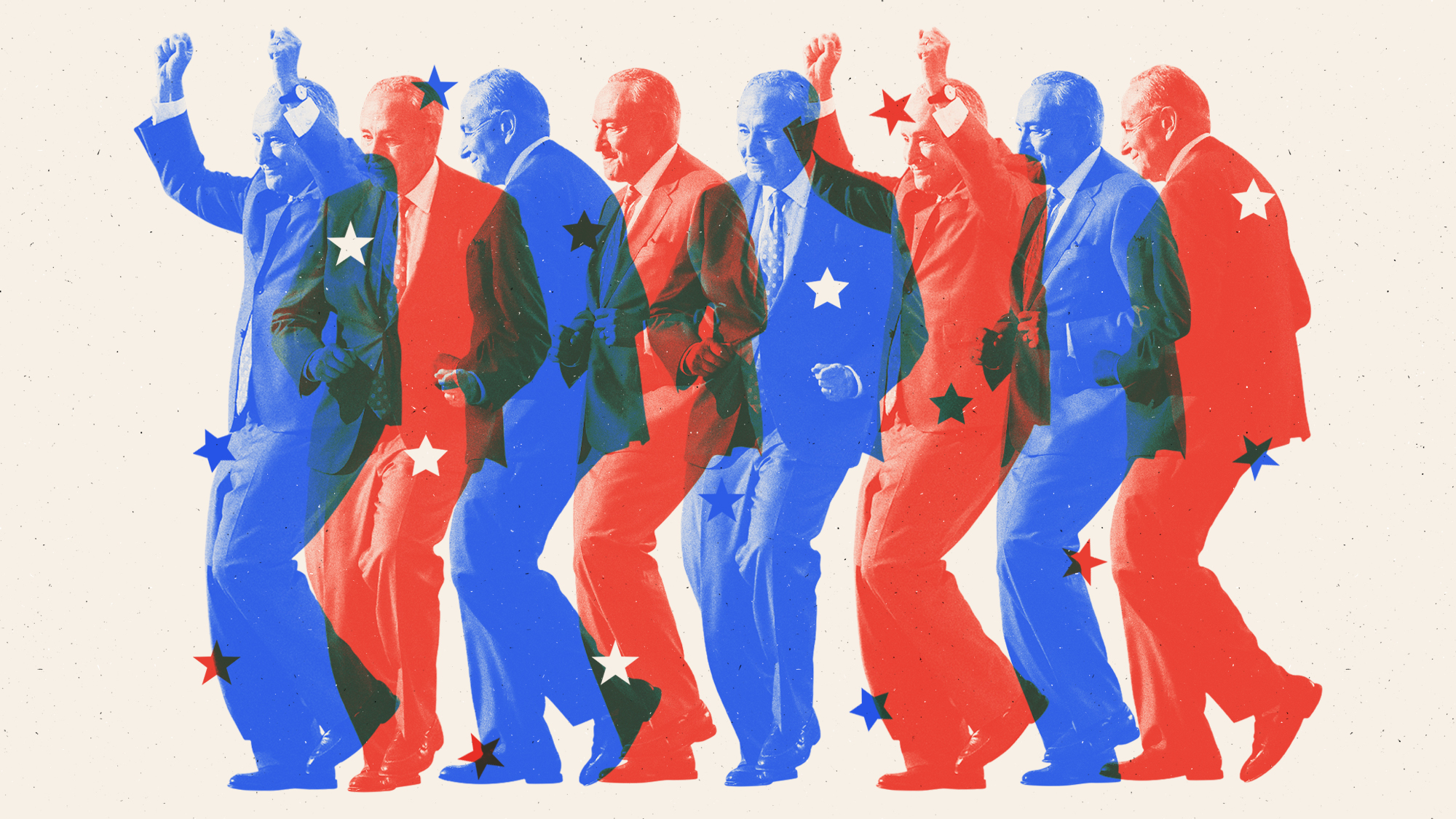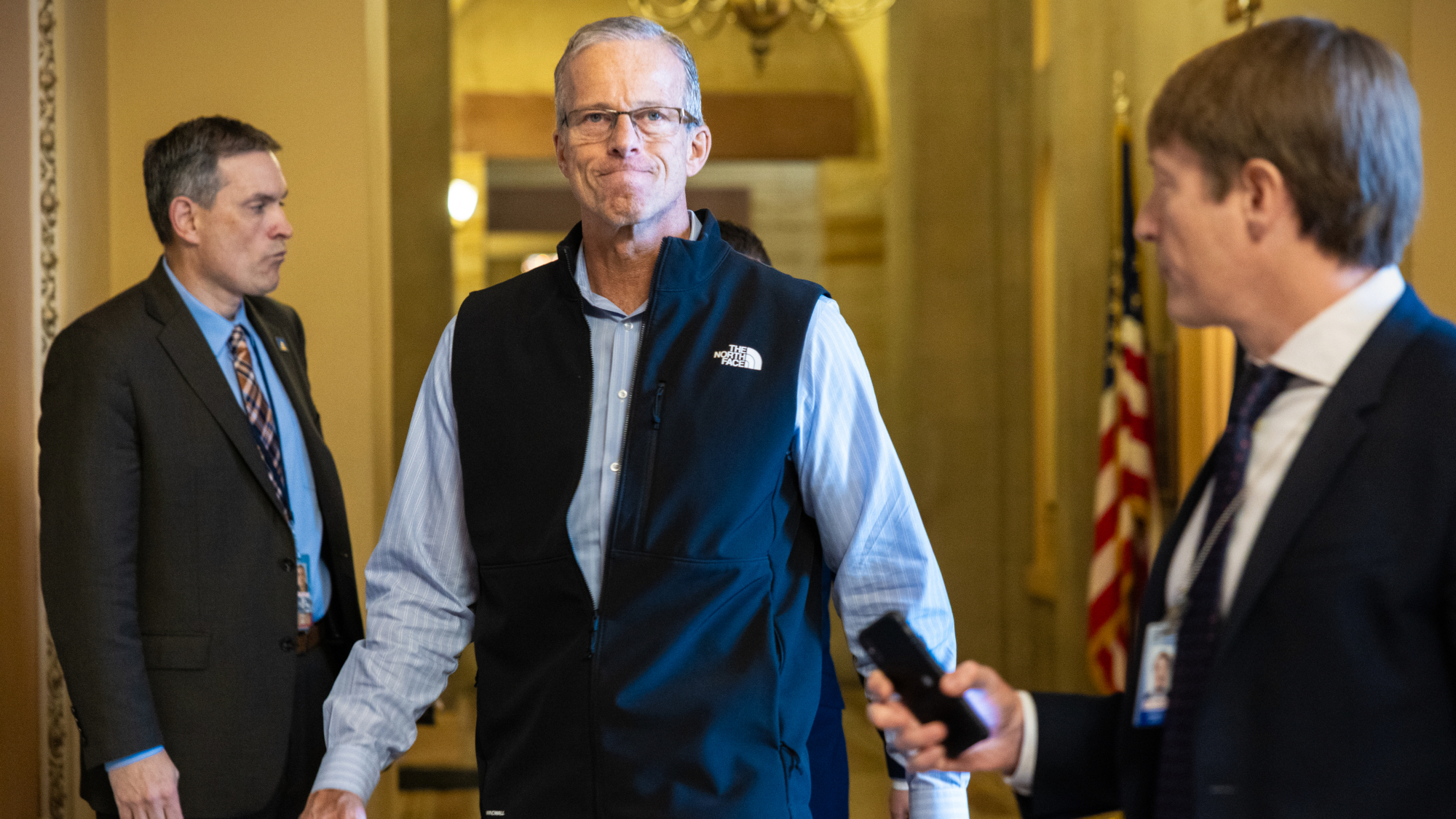Chuck Schumer's war on black people and the poor
Wall Street deregulation is guaranteed to harm minorities and the poor


A free daily email with the biggest news stories of the day – and the best features from TheWeek.com
You are now subscribed
Your newsletter sign-up was successful
I can't believe I'm saying this, but I miss Harry Reid.
As leader of Senate Democrats from 2005 to 2017, the Nevada senator did two critical things on financial regulation. First, he shepherded through the Dodd-Frank financial reform bill in 2010. Second, he bottled up multiple attempts to punch holes in the bill. It was by no means an adequate response to the 2008 financial crisis, but it could have been worse.
To see how, look no further than Reid's successor, New York's Chuck Schumer. The new Democratic leader is providing crucial assistance to Republicans and President Trump to get a sweeping rollback of Dodd-Frank pushed through Congress. It is political and policy malpractice — and amounts to announcing open season on African-Americans and the poor, so that his state's marquee industry can bleed them for profit.
The Week
Escape your echo chamber. Get the facts behind the news, plus analysis from multiple perspectives.

Sign up for The Week's Free Newsletters
From our morning news briefing to a weekly Good News Newsletter, get the best of The Week delivered directly to your inbox.
From our morning news briefing to a weekly Good News Newsletter, get the best of The Week delivered directly to your inbox.
Let's quickly review what this bill does. It quintuples the assets needed for a bank to be considered "systemically important" and thus subject to stricter regulation (from $50 billion to $250 billion). It exempts banks with less than $10 billion from the Volcker Rule, and opens a huge legal loophole for the very largest banks to reduce their capital requirements. It also exempts 85 percent of banks from collecting data used to prevent lending discrimination, and rolls back regulations on mobile home loans. The Congressional Budget Office estimates that the risk of financial crisis will be increased.
As I have previously argued, this deregulation is profoundly racist both in general and in its specifics. Deregulated banks cause economic crises that hit black Americans by far the worst — for example, during the foreclosure crisis the percentage of black households underwater on their mortgage spiked over 20-fold, while over the same period the corresponding white figure increased "only" 6-fold. Meanwhile, if they aren't carefully prevented from doing so, Wall Street preys on black people. That's a constant in American history going back to before the revolution.
Of course, black people are not the only victims of economic crises. Poor people in general and a considerable fraction of the middle and upper-middle class also got hammered by the 2008 crash and the ensuing weak recovery. If there's one structural reform needed in the American economy above all others, it's to sharply reduce the size and risk of the bloated, cancerous financial mass sucking the life from the rest of economy.
Now, Schumer himself did not vote for the bill. But make no mistake, he was the key to its passage. Party leadership has a considerable power in the Senate, both direct and indirect. He could have twisted arms and kept this thing off the floor as Reid did — but instead, as The New York Times reports, "he has given conservative-state Democrats leeway to vote as they see fit and has urged progressives in the party to tread lightly when criticizing moderates."
A free daily email with the biggest news stories of the day – and the best features from TheWeek.com
Given Schumer's very long history of fundraising from and doing favors for Wall Street, rolling back financial regulation is pretty clearly also how Schumer himself "sees fit," even if he can't be seen to actually vote for this turd.
That's doubly true given the large number of Democratic votes necessary to surmount a filibuster. As The Washington Post's Jeff Stein calculates, if every Democratic senator from a state Obama lost in 2012 voted for it, there would have only been 6 defections, not enough to get to 60. It took absolutely unjustifiable — and thus more easily-stopped — betrayal from blue and purple state senators like Colorado's Michael Bennet, Virginia's Tim Kaine and Mark Warner, and Delaware's Chris Coons and Tom Carper, to get it over the finish line.
It's no coincidence that Wall Street cheered when it became clear Schumer was going to take over after Reid. They knew exactly what they were going to get from him, and now they've got it — and might get more.
The limp justifications for this monstrous act are utter piffle. The community banks supposedly laboring under crushing regulatory burden are actually swimming in profits. This is nothing more than an act of successful bribery from an industry that almost exactly 10 years ago was in the process of caving in on itself and taking the world economy down with it.
As Ta-Nehisi Coates once noted, the really pernicious forms of racism in latter-day American society are generally quiet, subtle, and plausibly deniable. You start with maps about which sorts of neighborhood are eligible for government-insured mortgages, and end up with a racially segregated ghetto. You start by preventing the regulation of subprime mortgage derivatives, and end up with Wells Fargo flogging "ghetto loans" to "mud people" who qualify for better ones.
To be sure, Schumer and his merry band of Wall Street stooges will no doubt declaim any racist beliefs. But one doesn't need to be motivated by personal animus against black people to make policy which will have a baldly racist impact on American society. They are doing it right now.
Ryan Cooper is a national correspondent at TheWeek.com. His work has appeared in the Washington Monthly, The New Republic, and the Washington Post.
-
 How the FCC’s ‘equal time’ rule works
How the FCC’s ‘equal time’ rule worksIn the Spotlight The law is at the heart of the Colbert-CBS conflict
-
 What is the endgame in the DHS shutdown?
What is the endgame in the DHS shutdown?Today’s Big Question Democrats want to rein in ICE’s immigration crackdown
-
 ‘Poor time management isn’t just an inconvenience’
‘Poor time management isn’t just an inconvenience’Instant Opinion Opinion, comment and editorials of the day
-
 Trump links funding to name on Penn Station
Trump links funding to name on Penn StationSpeed Read Trump “can restart the funding with a snap of his fingers,” a Schumer insider said
-
 How realistic is the Democratic plan to retake the Senate this year?
How realistic is the Democratic plan to retake the Senate this year?TODAY’S BIG QUESTION Schumer is growing bullish on his party’s odds in November — is it typical partisan optimism, or something more?
-
 The billionaires’ wealth tax: a catastrophe for California?
The billionaires’ wealth tax: a catastrophe for California?Talking Point Peter Thiel and Larry Page preparing to change state residency
-
 Bari Weiss’ ‘60 Minutes’ scandal is about more than one report
Bari Weiss’ ‘60 Minutes’ scandal is about more than one reportIN THE SPOTLIGHT By blocking an approved segment on a controversial prison holding US deportees in El Salvador, the editor-in-chief of CBS News has become the main story
-
 Will Chuck Schumer keep his job?
Will Chuck Schumer keep his job?Today's Big Question Democrats are discontented and pointing a finger at the Senate leader
-
 Senate takes first step to end record shutdown
Senate takes first step to end record shutdownSpeed Read Eight senators in the Democratic caucus voted with Republicans to advance legislation to reopen the government
-
 Has Zohran Mamdani shown the Democrats how to win again?
Has Zohran Mamdani shown the Democrats how to win again?Today’s Big Question New York City mayoral election touted as victory for left-wing populists but moderate centrist wins elsewhere present more complex path for Democratic Party
-
 Judge halts firings during government shutdown
Judge halts firings during government shutdownFeature A federal judge blocked President Trump’s plan to cut jobs tied to “Democrat programs,” ruling that his administration violated layoff laws during the shutdown
